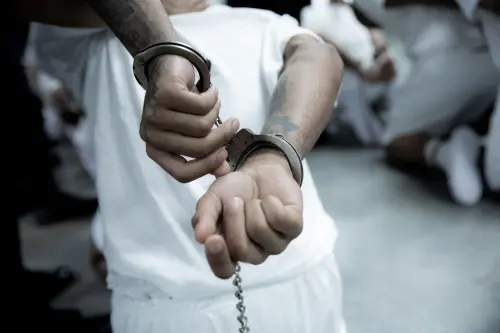Venezuela's Interior Minister Diosdado Cabello stated that none of the hundreds of Venezuelans deported by the U.S. to a Salvadoran prison are affiliated with the Tren de Aragua criminal gang, which Washington cited as the reason for their expulsion. Cabello expressed his confidence in this assertion during a podcast, mentioning that he had obtained names of the deportees from U.S. media and his own sources.
U.S. President Donald Trump invoked a wartime law to expedite the deportation of individuals whom the White House identified as members of the Venezuelan gang, which has been designated a terrorist group and alien enemy by the U.S. Despite a judicial ruling, the Trump administration deported more than 200 Venezuelans—137 under the wartime act—to El Salvador, where they are being held in a significant anti-terrorism facility, with their detention subject to annual renewal.
Families and lawyers of the deportees have been seeking information about their relatives and clients, demanding their return to Venezuela. The Venezuelan government claims that Tren de Aragua was effectively dismantled in 2023 and asserts that suggestions of its continued existence are based on claims from the political opposition. Cabello characterized these assertions as "a massive lie" and stated that Venezuela has the means to prove it, emphasizing that if the U.S. refuses to acknowledge this reality, that is their choice.
Originating in a prison in Venezuela's Aragua state, the gang is implicated in various crimes, including sex trafficking and contract killings, and has extended its influence beyond Venezuela, including to the U.S., amid a significant migrant exodus. The Trump administration is under pressure to respond to a judicial request regarding the deportations, following a U.S. judge's order for the plane carrying the deportees to turn back.
Cabello noted that out of 920 migrants returned on five flights since February, only 16 are currently involved in judicial proceedings in Venezuela. Caracas and Washington have exchanged accusations regarding deportation flights, with the U.S. asserting that Venezuela misrepresented the repatriation of deportees via Mexico. Conversely, a Venezuelan lawmaker charged that the U.S. is obstructing direct repatriation flights from the U.S. to Venezuela, which Caracas is prepared to resume.
In a separate development, the Canadian government announced sanctions against eight senior Venezuelan officials, citing human rights violations and efforts to undermine democracy. Caracas condemned these sanctions as "ridiculous," suggesting they were issued to appease Washington's agenda.
